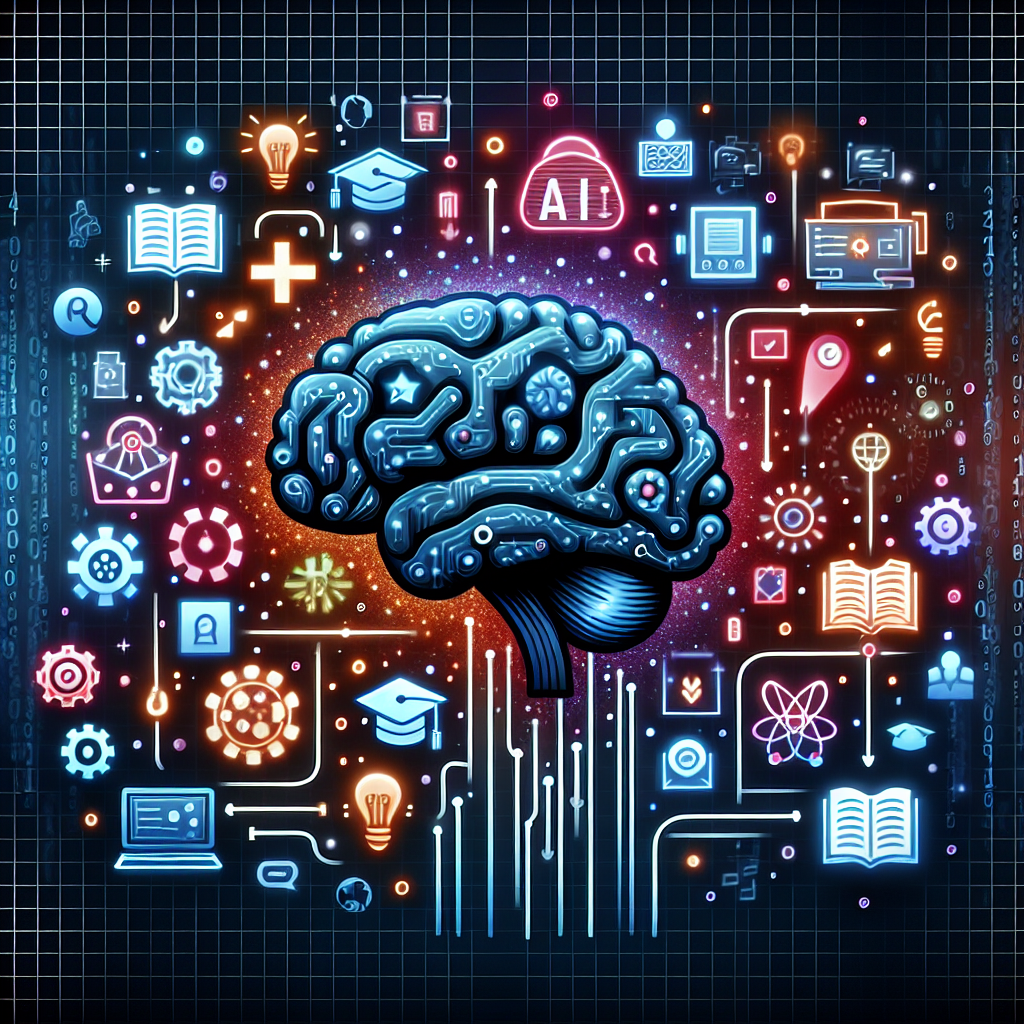Implementing AI Consulting in Education Systems
Artificial Intelligence (AI) has become increasingly prevalent in various industries, and the field of education is no exception. AI has the potential to revolutionize the way students learn and teachers teach, making education more personalized, efficient, and effective. In order to fully realize the benefits of AI in education, schools and educational institutions can benefit from implementing AI consulting services to help them integrate AI technologies into their systems.
What is AI Consulting in Education?
AI consulting in education involves working with experts in AI technology to help educational institutions leverage AI to improve learning outcomes, streamline administrative processes, and enhance overall efficiency. AI consulting services can help schools identify areas where AI can be most beneficial, develop customized AI solutions to meet their specific needs, and provide ongoing support and training to ensure successful implementation.
Benefits of Implementing AI Consulting in Education Systems
There are several key benefits to implementing AI consulting in education systems:
1. Personalized Learning: AI can analyze data on individual student performance and learning styles to create personalized learning plans tailored to each student’s needs, abilities, and interests. This can help students learn at their own pace and in a way that is most effective for them, leading to improved academic outcomes.
2. Improved Teacher Efficiency: AI can automate routine tasks such as grading, lesson planning, and administrative work, allowing teachers to focus more of their time and energy on teaching and mentoring students. This can lead to more engaged and motivated teachers, as well as better outcomes for students.
3. Enhanced Student Engagement: AI can be used to create interactive learning experiences, such as virtual simulations, games, and adaptive learning platforms, that engage students and make learning more enjoyable and effective. This can help students stay motivated and interested in their studies, leading to better retention and understanding of the material.
4. Data-Driven Decision Making: AI can analyze large amounts of data on student performance, attendance, behavior, and other factors to help schools make more informed decisions about curriculum, teaching methods, and resource allocation. This can lead to more effective and efficient use of resources, as well as improved outcomes for students.
5. Cost Savings: By automating routine tasks and streamlining administrative processes, AI can help schools save time and money. This can free up resources to invest in other areas of education, such as improving infrastructure, hiring more teachers, or providing additional support services for students.
FAQs about Implementing AI Consulting in Education Systems
Q: How can AI consulting help schools identify areas where AI can be most beneficial?
A: AI consulting experts can conduct a thorough assessment of a school’s current systems, processes, and challenges to identify areas where AI can be most beneficial. They can then develop customized AI solutions to address these specific needs and help schools implement and integrate these solutions into their existing systems.
Q: What are some common AI technologies used in education?
A: Some common AI technologies used in education include machine learning algorithms, natural language processing, chatbots, virtual assistants, and predictive analytics. These technologies can be used to create personalized learning experiences, automate routine tasks, and analyze data to improve decision making in education.
Q: How can schools ensure the privacy and security of student data when implementing AI technologies?
A: Schools can work with AI consulting experts to develop robust data privacy and security protocols to protect student data when implementing AI technologies. This may include encryption, access controls, data anonymization, and regular security audits to ensure that student data is protected at all times.
Q: What are some challenges schools may face when implementing AI technologies?
A: Some challenges schools may face when implementing AI technologies include resistance from teachers or staff, lack of technical expertise, integration with existing systems, and concerns about data privacy and security. AI consulting services can help schools navigate these challenges and ensure a successful implementation of AI technologies in education.
Q: How can schools measure the impact of AI technologies on student learning outcomes?
A: Schools can work with AI consulting experts to develop key performance indicators (KPIs) and metrics to measure the impact of AI technologies on student learning outcomes. These may include test scores, graduation rates, attendance rates, and student satisfaction surveys to assess the effectiveness of AI technologies in improving learning outcomes.
In conclusion, implementing AI consulting in education systems can help schools leverage the power of AI to improve learning outcomes, enhance teacher efficiency, and create more personalized and engaging learning experiences for students. By working with AI consulting experts, educational institutions can develop customized AI solutions to address their specific needs and challenges, leading to a more efficient, effective, and innovative education system.

